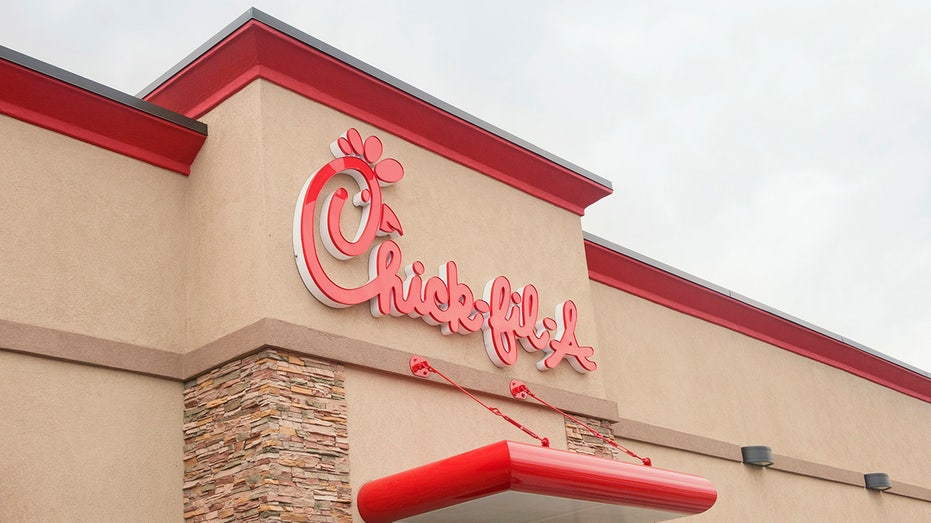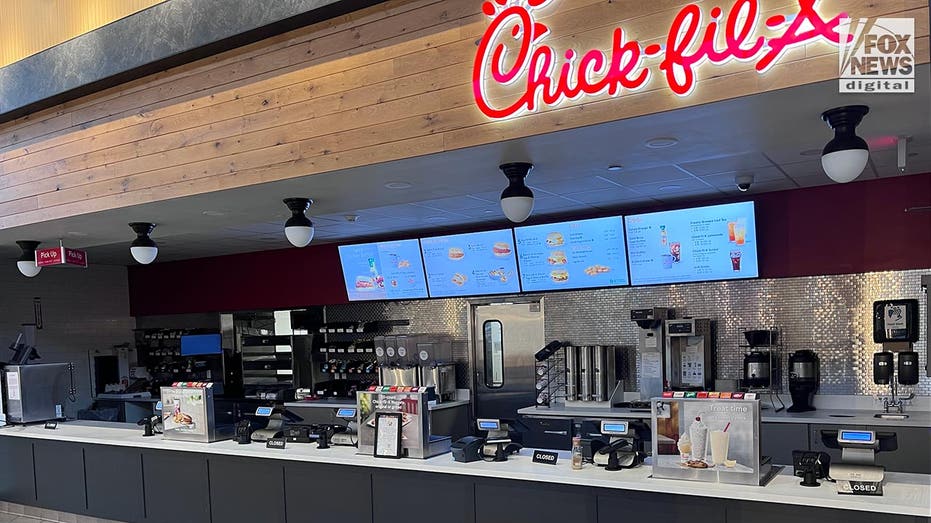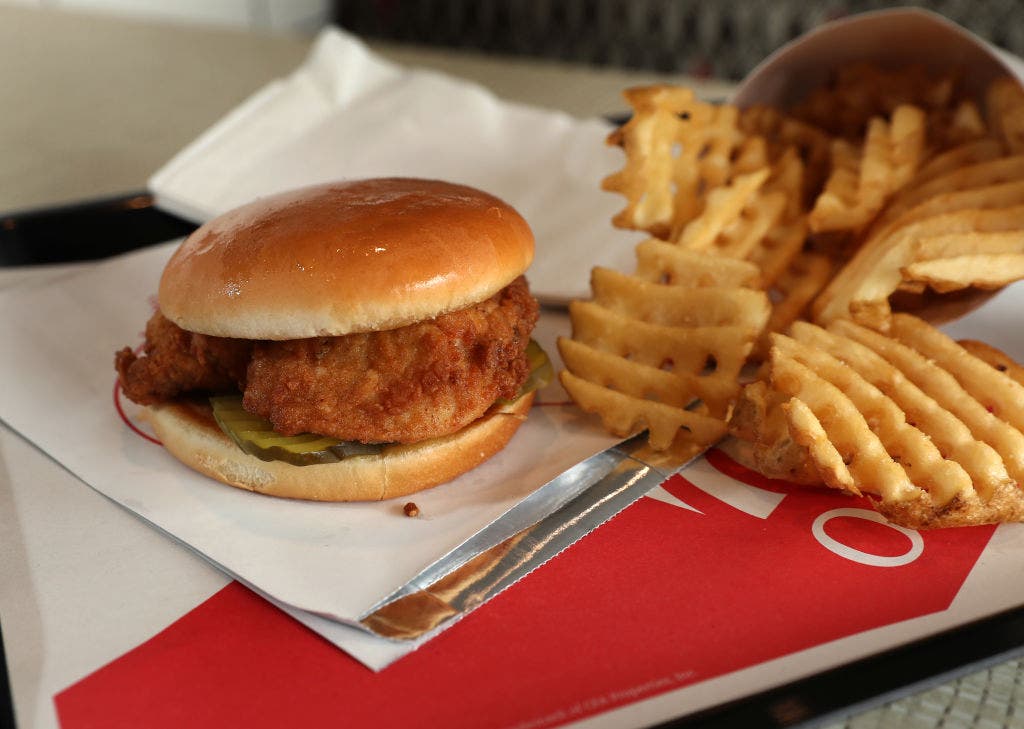Chick-Fil-A, a fast food chain known for its chicken sandwiches and salads, has announced that it will be shifting from antibiotic-free chicken to a new policy called NAIHM (No Antibiotics Important To Human Medicine). This change is being made due to supply shortages of antibiotic-free chicken. The company had previously committed to serving only antibiotic-free chicken, but has now decided that this standard is no longer feasible for their business operations. Chick-Fil-A's decision comes after many other companies in the poultry industry have also shifted away from using antibiotics in their production processes.
Chick-Fil-A Shifts from Antibiotic-Free Chicken to NAIHM Policy Due to Supply Shortages
Atlanta, Georgia, United States United States of AmericaChick-Fil-A has announced a shift from antibiotic-free chicken to NAIHM policy due to supply shortages.
The company had previously committed to serving only antibiotic-free chicken, but this standard is no longer feasible for their business operations.




Confidence
80%
Doubts
- Is there a possibility that the company's decision was influenced by pressure from other companies in the poultry industry?
Sources
76%
Chick-Fil-A backtracks from its no-antibiotics-in-chicken pledge, blames projected supply shortages
The Associated Press News Sunday, 24 March 2024 22:44Unique Points
- Chick-Fil-A backtracked from its no antibiotics ever pledge.
- The company will embrace a standard known as NAIHM, which entails the avoidance of medications commonly used to treat people and limits the use of animal antibiotics to cases of actual animal illness.
- Livestock producers have long used antibiotics to boost rapid weight gain in animals such as chickens, pigs, cows and sheep.
- Many nations including the United States have begun to restrict this practice as evidence mounted that it was contributing to drug resistance and reducing the effectiveness of antibiotics against disease in humans.
- Chick-Fil-A said it will begin shifting to this new policy in spring 2024.
Accuracy
- Chick-Fil-A backtracked from its decade-old 'no antibiotics ever' pledge.
- Over the past decade, many nations including the United States have begun to restrict this practice as evidence mounted that it was contributing to drug resistance and reducing the effectiveness of antibiotics against disease in humans.
- One of poultry industry's largest companies, Tyson Foods, reintroduced some antibiotics to its chicken production and removed 'No Antibiotics Ever' package labeling last year.
- Ionophores have long been used to promote growth in livestock.
Deception (30%)
The article is deceptive in several ways. Firstly, the title claims that Chick-Fil-A has backtracked on its no antibiotics pledge when in fact it has only shifted to a new policy of using NAIHM which still allows for some use of animal antibiotics. Secondly, the article quotes Tyson Foods as saying they are reintroducing some antibiotics to their chicken production and removing their No Antibiotics Ever package labeling, implying that Chick-Fil-A is following suit when in fact it has not made any such change. Lastly, the article uses sensationalist language by stating that human antibiotic resistance linked to livestock production is a rampant problem and implies that this is solely due to the use of animal antibiotics.- The article quotes Tyson Foods as saying they are reintroducing some antibiotics to their chicken production and removing their No Antibiotics Ever package labeling, implying that Chick-Fil-A is following suit when in fact it has not made any such change.
- The title claims that Chick-Fil-A has backtracked on its no antibiotics pledge when in fact it has only shifted to a new policy of using NAIHM which still allows for some use of animal antibiotics.
Fallacies (85%)
The article contains an appeal to authority fallacy by stating that the fast-food chain Chick-Fil-A backtracked from its decade-old no antibiotics ever pledge. The author does not provide any evidence or reasoning for this claim. Additionally, there is a dichotomous depiction of livestock producers who use antibiotics to boost rapid weight gain in animals and those who do not, which oversimplifies the issue.- The article states that Chick-Fil-A backtracked from its no antibiotics ever pledge. However, there is no evidence or reasoning provided for this claim.
Bias (85%)
The article reports that Chick-Fil-A is backtracking from its no antibiotics in chicken pledge due to projected supply shortages. The company will now embrace a standard known as NAIHM which entails the avoidance of medications commonly used to treat people and limits the use of animal antibiotics to cases of actual animal illness. This change is being made because many nations, including the United States, have begun restricting the practice due to evidence that it was contributing to drug resistance and reducing effectiveness against disease in humans. The article also mentions Tyson Foods reintroducing some antibiotics into its chicken production and removing its No Antibiotics Ever package labeling.- Chick-Fil-A backtracked from its decade-old no antibiotics ever pledge
- Livestock producers have long used antibiotics to boost rapid weight gain in animals such as chickens, pigs, cows and sheep
- One of the poultry industry's largest companies Tyson Foods said last year that it was reintroducing some antibiotics into its chicken production
- Over the past decade, however, many nations, including the United States, have begun to restrict the practice as evidence mounted that it was contributing to drug resistance and reducing effectiveness against disease in humans.
- The company said in a statement that it will embrace a standard known as NAIHM, which entails the avoidance of medications commonly used to treat people and limits the use of animal antibiotics to cases of actual animal illness.
Site Conflicts Of Interest (100%)
None Found At Time Of Publication
Author Conflicts Of Interest (0%)
None Found At Time Of Publication
70%
Chick-fil-A set to switch from antibiotic-free chicken
Fox Business Network Haley Chi-Sing Monday, 25 March 2024 05:39Unique Points
- Chick-Fil-A backtracked from its decade-old 'no antibiotics ever' pledge.
- The company will embrace a standard known as NAIHM, which entails the avoidance of medications commonly used to treat people and limits the use of animal antibiotics to cases of actual animal illness.
- One of poultry industry's largest companies, Tyson Foods, reintroduced some antibiotics to its chicken production and removed 'No Antibiotics Ever' package labeling last year.
Accuracy
- The company will embrace a standard known as NAIHM, which entails the avoidance of medications commonly used to treat people and limits the use of animal antibiotics to cases of actual animal illness.
Deception (50%)
The article is deceptive in several ways. Firstly, the title claims that Chick-fil-A will be switching from antibiotic-free chicken starting this spring. However, the body of the article states that they are shifting from No Antibiotics Ever (NAE) to No Antibiotics Important To Human Medicine (NAIHM). These two terms have different meanings and it is not clear what Chick-fil-A's reasoning for this change was. Secondly, the article states that NAE means no antibiotics of any kind were used in the raising of the animal. However, this statement is false as some animals are given antibiotics to prevent disease before they reach adulthood and then removed from their diet once they do. This information can be found on Chick-fil-A's website under- The article claims that Chick-fil-A will be switching from antibiotic-free chicken starting this spring. However, the body of the article states that they are shifting from No Antibiotics Ever (NAE) to No Antibiotics Important To Human Medicine (NAIHM). These two terms have different meanings and it is not clear what Chick-fil-A's reasoning for this change was.
- The article claims that NAE means no antibiotics of any kind were used in the raising of the animal. However, this statement is false as some animals are given antibiotics to prevent disease before they reach adulthood and then removed from their diet once they do.
Fallacies (85%)
The article contains several fallacies. The author uses an appeal to authority when stating that Chick-fil-A had previously switched to antibiotic-free chicken in 2014 and eventually met its goal of serving antibiotic-free chicken at all chain restaurants in 2019, without providing any evidence or sources for this information. The author also uses inflammatory rhetoric when stating that the availability of high-quality chicken became a concern for Chick-fil-A, which could be seen as an attempt to manipulate the reader's emotions rather than presenting factual information. Additionally, there are several examples of dichotomous depictions in the article. For example, NAE is described as- The announcement read.
- <br>No specific deadline has yet to be announced for the change to roll out.<br>
- <br>According to Reuters.
Bias (85%)
The author of the article is Haley Chi-Sing and she has a clear bias towards Chick-fil-A's decision to switch from antibiotic free chicken. The language used in the article such as 'maintain supply', 'high quality chicken', and 'meets expectations' all suggest that there was an issue with the availability of antibiotic free chicken, which is not mentioned anywhere else in the article.- To maintain supply of the high-quality chicken you expect from us, Chick-fil-A will shift from No Antibiotics Ever (NAE) to No Antibiotics Important To Human Medicine (NAIHM) starting in the Spring of 2024,
Site Conflicts Of Interest (50%)
None Found At Time Of Publication
Author Conflicts Of Interest (50%)
None Found At Time Of Publication
64%
Chick-Fil-A backtracks from its no-antibiotics-in-chicken pledge, blames projected supply shortages
The Fixing Site: A Summary of the Article. Associated Press Sunday, 24 March 2024 22:45Unique Points
- Chick-Fil-A backtracked from its decade-old 'no antibiotics ever' pledge.
- The company will embrace a standard known as NAIHM, which entails the avoidance of medications commonly used to treat people and limits the use of animal antibiotics to cases of actual animal illness.
- Livestock producers have long used antibiotics to boost rapid weight gain in animals such as chickens, pigs, cows and sheep.
- Over the past decade, many nations including the United States have begun to restrict this practice as evidence mounted that it was contributing to drug resistance and reducing the effectiveness of antibiotics against disease in humans.
- One of poultry industry's largest companies, Tyson Foods, reintroduced some antibiotics to its chicken production and removed 'No Antibiotics Ever' package labeling last year.
- Ionophores have long been used to promote growth in livestock.
Accuracy
- Livestock producers have long used antibiotics to boost rapid weight gain in animals such as chickens.
Deception (30%)
The article reports that Chick-Fil-A has backtracked from its no antibiotics in chicken pledge. The company is now embracing a standard known as NAIHM which allows for the use of animal antibiotics to treat actual animal illness but not medications commonly used to treat people. This change was made due to concerns about supply shortages and not because it believes that using antibiotics in livestock production contributes to drug resistance and reduces the effectiveness of antibiotics against disease in humans.- The article reports that Chick-Fil-A has backtracked from its no antibiotics in chicken pledge. The company is now embracing a standard known as NAIHM which allows for the use of animal antibiotics to treat actual animal illness but not medications commonly used to treat people.
- Livestock producers have long used antibiotics to boost rapid weight gain in animals such as chickens, pigs, cows and sheep.
Fallacies (85%)
The article contains an appeal to authority fallacy by stating that the United States and other nations have begun to restrict the practice of using antibiotics in livestock production as evidence mounted that it was contributing to drug resistance and reducing the effectiveness of antibiotics against disease in humans. However, this statement is not supported with any scientific research or data.- The article states that many nations have begun to restrict the practice of using antibiotics in livestock production as evidence mounted that it was contributing to drug resistance and reducing the effectiveness of antibiotics against disease in humans. However, this statement is not supported with any scientific research or data.
Bias (75%)
The article reports that Chick-Fil-A is backtracking from its no antibiotics in chicken pledge due to projected supply shortages. This statement implies a monetary bias as the company's primary concern seems to be profitability rather than public health. Additionally, the use of language such as 'boost rapid weight gain' and 'improve overall health and welfare of birds' deploys an ideological bias by presenting antibiotics in livestock production solely from a positive perspective.- The company said that it will embrace a standard known as no antibiotics important to human medicine, often abbreviated as NAIHM,
Site Conflicts Of Interest (50%)
The article reports on Chick-Fil-A's decision to backtrack from its pledge to use no antibiotics in chicken. The author is Associated Press and the topics of interest are livestock production, poultry industry, Tyson Foods and Karen Christensen.- Chick-Fil-A has been under pressure from animal welfare advocates who argue that using antibiotics to prevent disease in chickens contributes to antibiotic resistance. The company had previously pledged to phase out the use of such drugs, but on Friday it announced a temporary suspension of its no-antibiotics policy.
- The article mentions Tyson Foods as one of the companies that have been criticized for their use of antibiotics in livestock production. The author also talks about Karen Christensen who is an animal welfare advocate and has been campaigning against the use of antibiotics in chickens.
Author Conflicts Of Interest (50%)
None Found At Time Of Publication